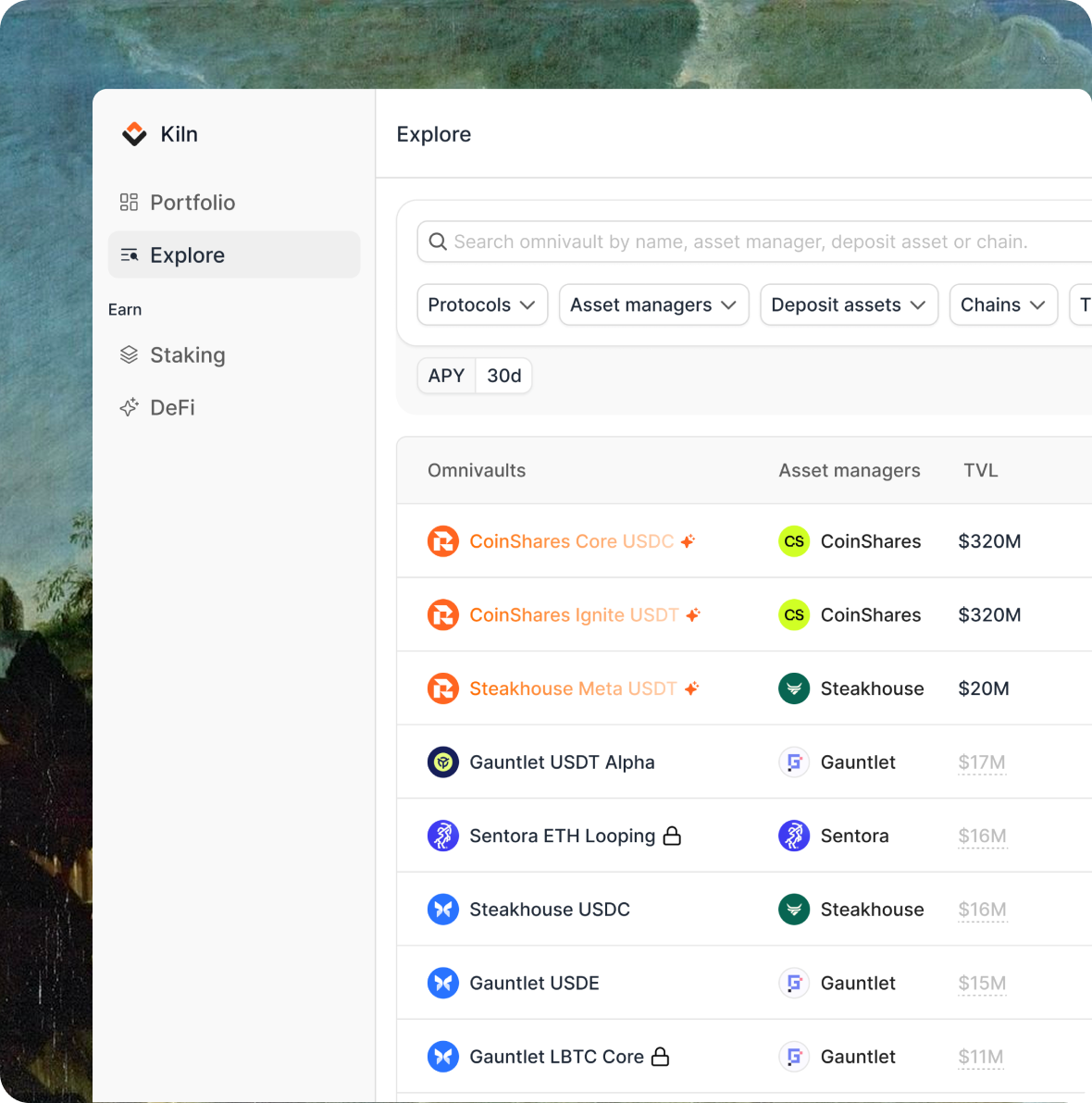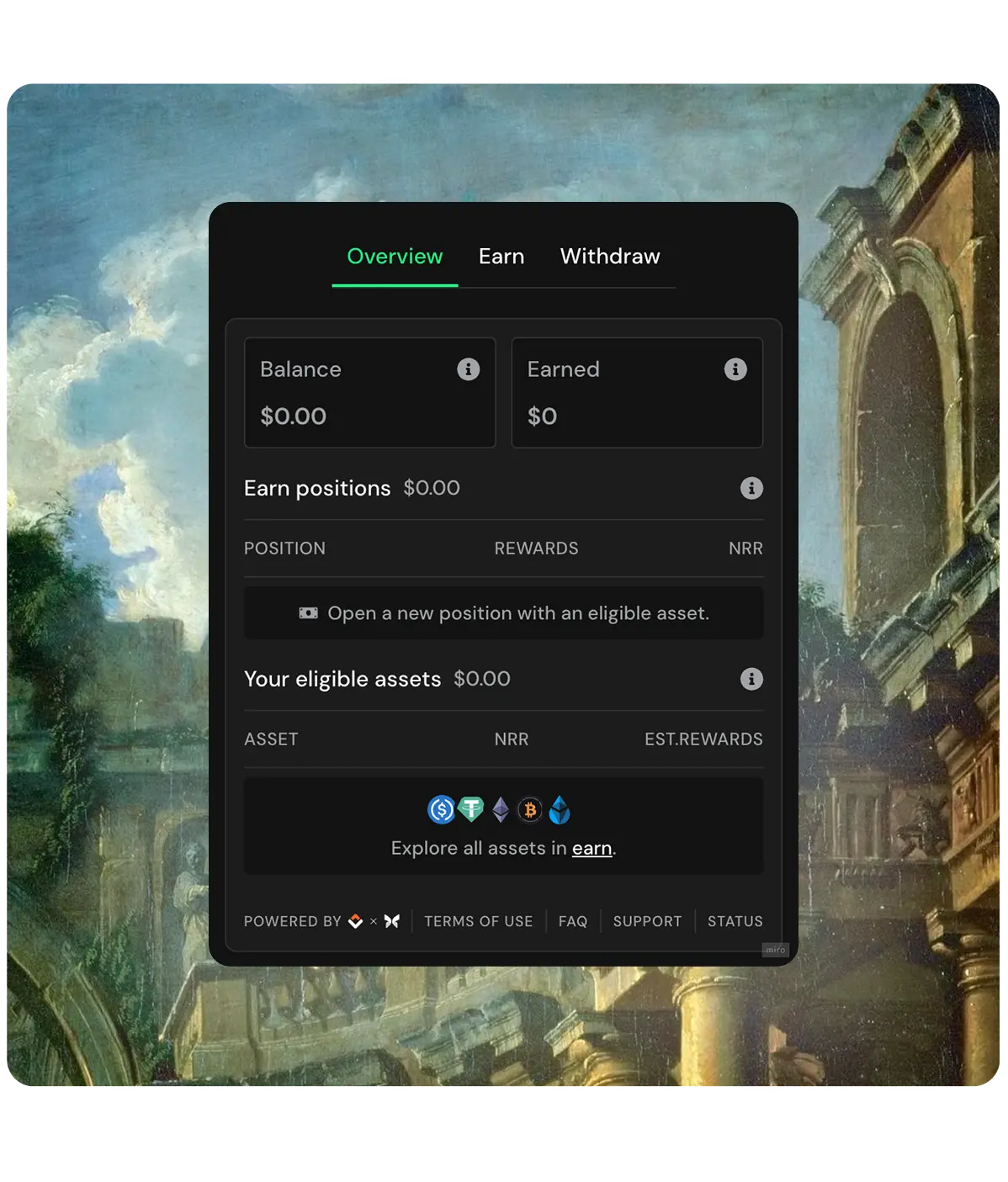Products

Open-source

Restaking

dApp

Enterprise Dashboard

Validators

Connect

On-Chain

DeFi
Solutions
Protocols
STAKING
Docs
Products



DEFI
Solutions
Protocols
STAKING
Docs

















SOC2 Type II certified security standards, including 24/7 monitoring, smart contract audits, pentests, and bug bounties.
Multi-cloud battle-tested infrastructure operating at scale for years.
Institutional-grade compliance standards, ready to integrate into your Earn program.
Supporting new protocols and paradigms as they mature, so you stay ahead of the curve.
1-click earning, whitelabelled in a day.





"Integrating Kiln into Ledger Live and Vault has been a game-changer for our users, who can now earn yield on their Ledger-custodied assets, while helping secure the biggest proof-of-stake networks."

Alex Zinder
VP Enterprise Solutions, Ledger
No. Kiln is non-custodial.
Clients continue to operate through their existing custody providers, including Fireblocks, BitGo, Ledger Enterprise, Coinbase Prime, Anchorage and others. Assets remain under the client’s control at all times.
Kiln provides the infrastructure layer that enables yield generation while preserving institutional security standards.
Kiln Dashboard provides real-time visibility across assets, networks, and strategies.
Clients can monitor performance, track rewards, import positions held with other providers, and export audit-ready reports for accounting and risk management purposes. Role-based permissions allow teams to manage access across funds, entities, or client accounts.
The platform is designed to make onchain yield compatible with institutional reporting standards.
Kiln works with a broad range of institutional participants, including asset managers, custodians, exchanges, wallets, and corporate treasuries.
Clients include leading asset managers such as VanEck, 21Shares, and CoinShares, as well as major platforms including Ledger, Crypto.com, and Trust Wallet.
Funds use Kiln to access and monitor yield across assets and strategies within an institutional framework. Platforms use Kiln to integrate yield capabilities for their users without building complex onchain infrastructure internally.